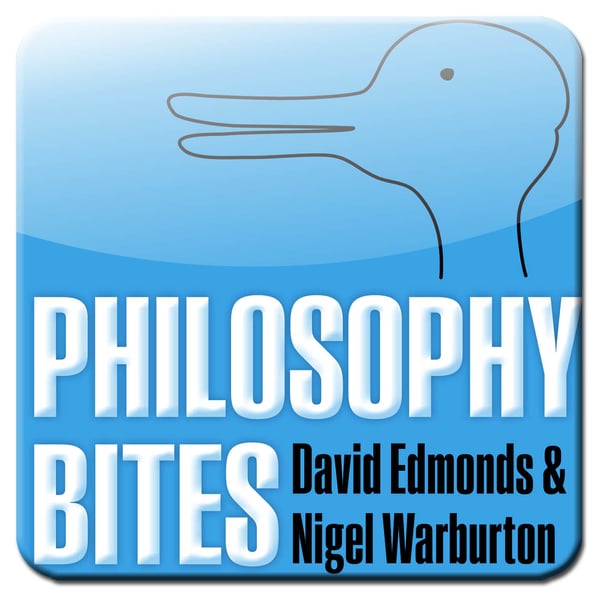Peter Singer on Consequentialism
Philosophy Bites
Nigel Warburton
4.6 • 2K Ratings
🗓️ 19 May 2022
⏱️ 22 minutes
🧾️ Download transcript
Summary
Peter Singer is probably the most famous living philosopher. He recently won the million-dollar Berggruen Prize and promptly gave all that money to charity. His positions on this, on animals, poverty, altruism, and much else besides are underpinned by his consequentialism. Here, in conversation with Nigel Warburton he explains his consequentialism and its implications.
Transcript
Click on a timestamp to play from that location
| 0:00.0 | This is Philosophy Bites with me, Nigel Wolberton and me, David Edmunds. |
| 0:07.7 | If you enjoy Philosophy Bites, please support us. We're currently unfunded and all donations |
| 0:12.5 | would be gratefully received. For details, go to www.philosophybites.com |
| 0:19.2 | He's arguably the world's most famous living philosopher, known especially for his contributions |
| 0:24.3 | to debates about poverty and animal welfare. To these and to all the other areas he's written |
| 0:30.2 | about, Peter Singer, recent winner of the Bergruin Prize, brings a very consistent consequentialism. |
| 0:36.6 | Peter Singer, welcome to Philosophy Bites. Thank you, Nigel. It's good to be with you again. |
| 0:42.2 | The topic we're going to talk about is consequentialism. To me, it seems that's right at the heart |
| 0:47.0 | of everything that you do. Could you say broadly what consequentialism is? |
| 0:53.0 | The consequentialism is the view that whether an action is right depends on its consequences. |
| 0:59.4 | So in thinking about how we ought to live, we should be focusing on the consequences of the way we're living. |
| 1:07.2 | So the most important philosophical question seems to me and to most people is how should we live? |
| 1:13.9 | And if the answer is we should bring about the best consequences, that's different from what is said in many traditions, |
| 1:21.5 | which is we should be the best kind of people we can be. Yes, it is different from other traditions, |
| 1:26.8 | both those that say we should be the best person we can be and from those who say there are certain |
| 1:32.2 | rules that we should follow and we should never violate those rules. Consequentialism is a break |
| 1:40.2 | with those different ethical traditions. And it's quite radical in some of its conclusions. |
| 1:45.6 | So it'd be nice to just sort of sketch out what that would mean in practice for something like |
| 1:49.6 | whether lying is morally acceptable or not. For consequentialists, whether it's right to lie will |
| 1:56.4 | depend on the consequences of your lie. That includes, of course, not just the consequences for yourself, |
| 2:02.4 | but the consequences for all others affected by your lie, not just those who are alive at present, |
| 2:10.0 | but as far into the future as we can predict. So that does mean that there will be circumstances |
... |
Please login to see the full transcript.
Disclaimer: The podcast and artwork embedded on this page are from Nigel Warburton, and are the property of its owner and not affiliated with or endorsed by Tapesearch.
Generated transcripts are the property of Nigel Warburton and are distributed freely under the Fair Use doctrine. Transcripts generated by Tapesearch are not guaranteed to be accurate.
Copyright © Tapesearch 2025.

